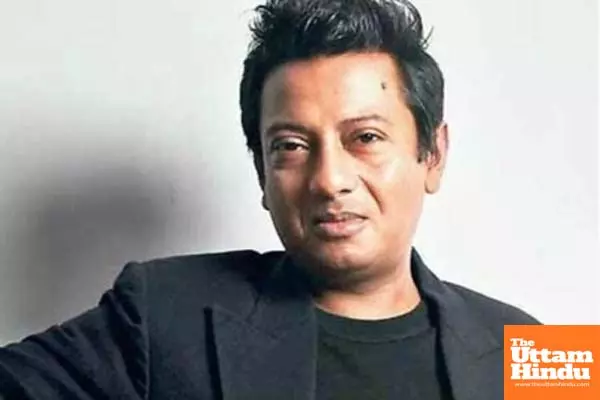
Queer narratives are often overlooked by major studios and people at large: Filmmaker Onir

Mumbai (The Uttam Hindu): Filmmaker Onir has long explored themes of 'identity' in his work, particularly LGBTQ+ issues, and complex human relationships, topics largely neglected by mainstream Hindi cinema. His latest film, 'We Are Faheem and Karun', shot in the breathtaking Gurez Valley of Kashmir, had its world premiere at the recent Dharamshala International Film Festival (DIFF). The film features a largely local cast and tells the story of Karun, a young security officer from southern India stationed in the remote Gurez Valley, and Faheem, a Kashmiri man he meets at a checkpoint. The movie depicts the doomed romance that follows between the two men. However, Onir laments that queer narratives are often not given the attention they deserve. "In this heteronormative world, these stories are sidelined. Finance becomes a major issue, and there's a clear division -- 'our' stories vs. 'their' stories. While some major studios may dabble in tokenism with a single gay film, there's still a lack of maturity in decision-making spaces -- and among audiences. It's no surprise that we have to keep submitting our films to queer festivals," he tells IANS. The National Award-winning director, known for films like 'My Brother… Nikhil', 'I Am', 'Bus Ek Pal', 'Shabd', and 'Kuchh Bheege Alfaaz', even invested his own insurance money to fund his latest film, which is presented by filmmaker Deepa Mehta. Sharing that his desire to make a sequel to 'I Am' -- titled 'We Are', to celebrate the landmark 2018 Supreme Court verdict decriminalising homosexuality, eventually led to 'We Are Faheem & Karun', he recalls that the movie was originally conceived as an anthology with four stories -- gay, lesbian, trans, and bisexual. However, the director found that each story worked better on its own, giving birth to his current project. Shot in the stark yet stunning Gurez Valley, Kashmiri actors were chosen deliberately.
"Representation matters. For queer stories, we need more queer voices behind the camera. Similarly, in this film, it's important that the community is represented by people from there. In Hindi cinema, non-Kashmiris often portray people from the region, not to mention the one-dimensional depictions. The film is in Kashmiri because I did not want to indulge in tokenism, adding a few words in accented Kashmiri to show authenticity," says Onir, who believes the Valley holds immense untapped talent, though it can be challenging to get women in front of the camera. Reflecting on the role of 'identity' in his work, he stresses that when one's identity is ignored, one becomes more aware of other marginalised communities. "Being queer doesn't limit your empathy -- it expands it. Even in 'I Am', not all stories were solely about queer identity," he says. Now, the filmmaker, who co-wrote his memoir (along with his sister) 'I Am Onir and I Am Gay' hopes to explore more Kashmiri stories, not necessarily tied to the region's conflict. Mir Salman, who plays the lead role, believes that the movie will help break stereotypes about Kashmiri actors. "I am confident this film will challenge perceptions. Also, Kashmiri actors need to work hard to expand their range, improve language skills, and break barriers," he says. Sana, who plays Mir's mother, relates to her character's instinct to protect her child. "I have two sons of the same age, and a mother's first instinct is always to protect her children. Many asked if a mother in the Kashmiri countryside would react the way my character does to her son being gay. My answer is yes -- geography does not define a mother's instinct," she concludes.

